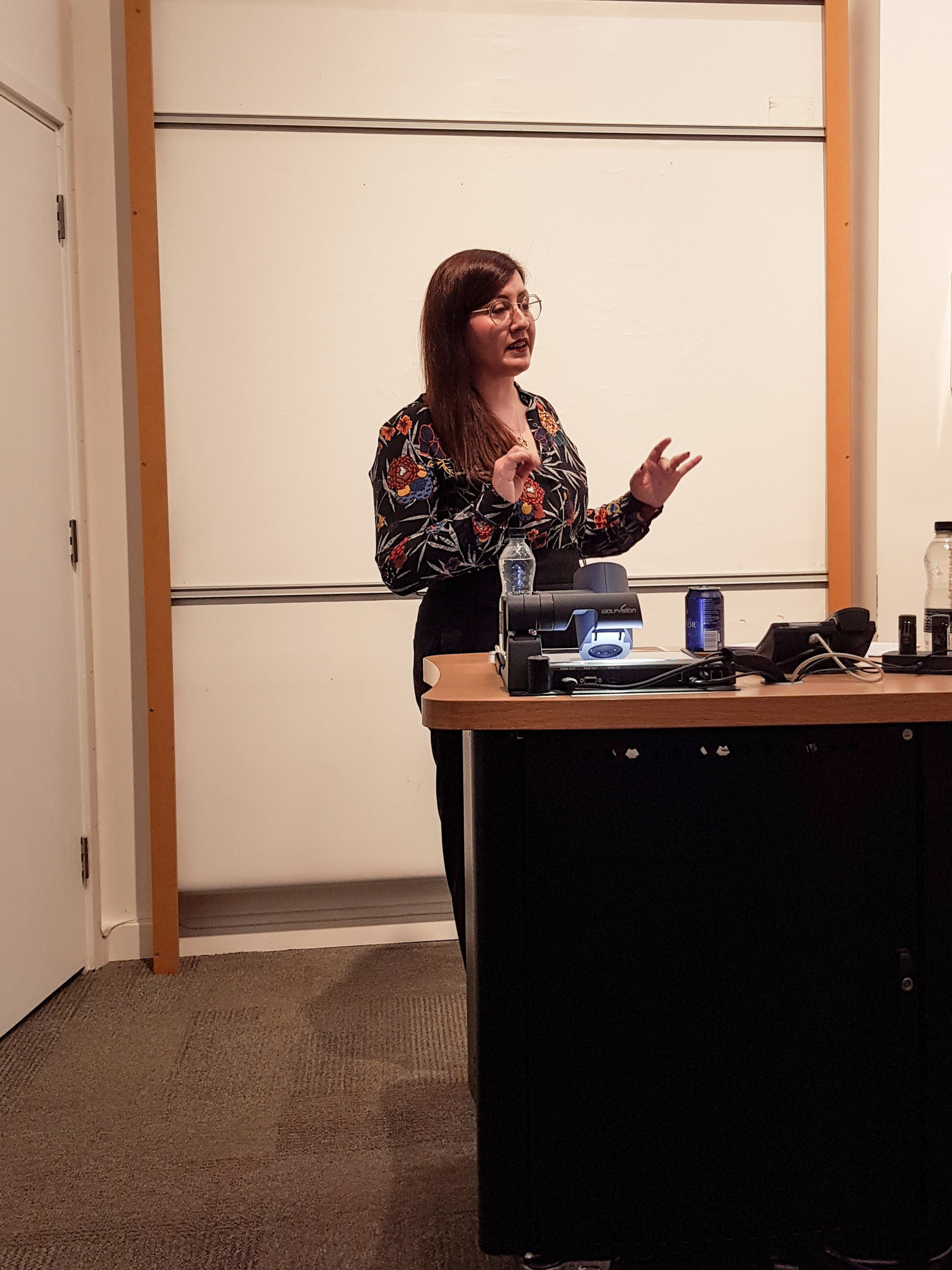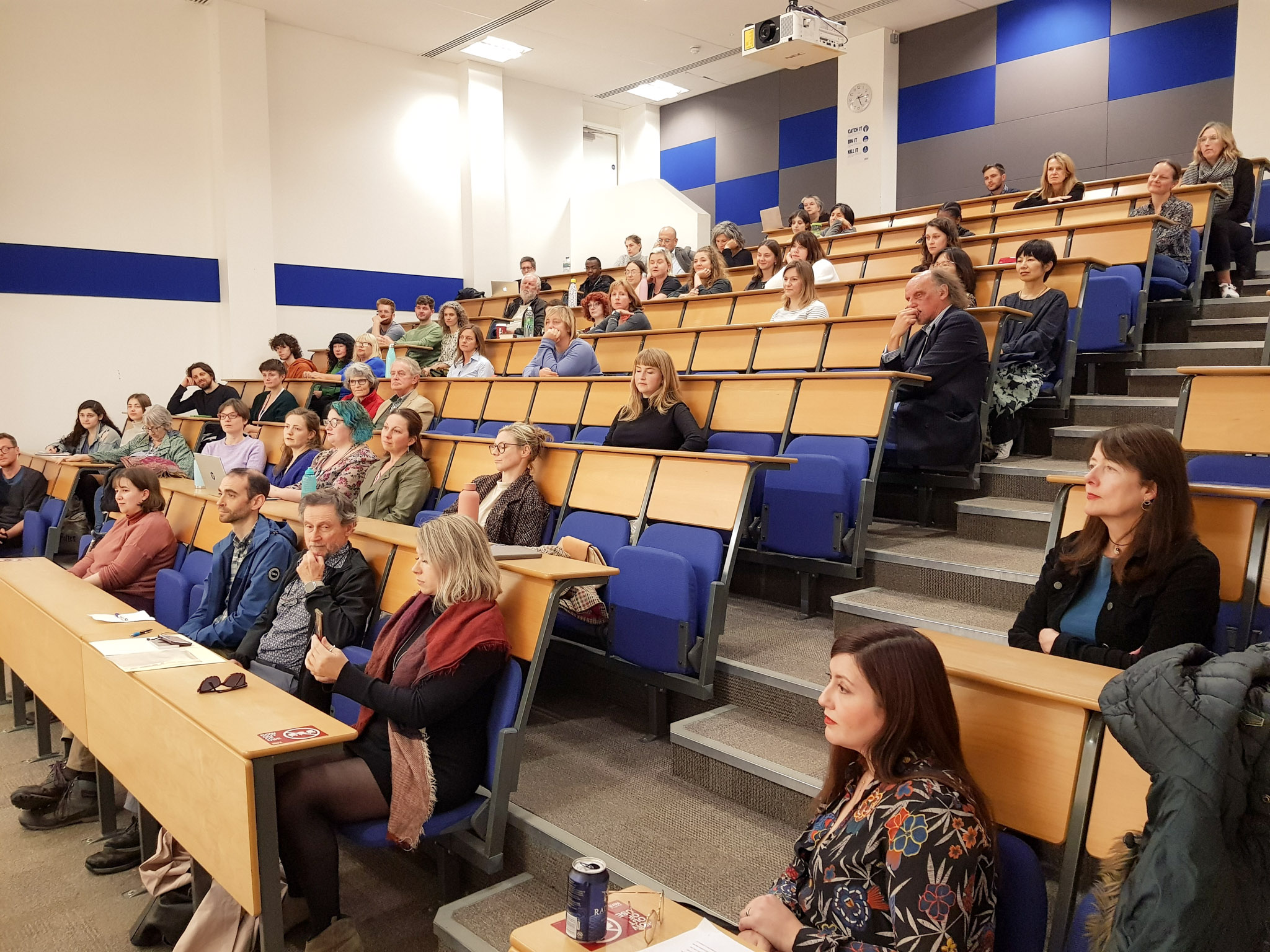“This work doesn’t stand in opposition to the clinical. It stands in solidarity as the connective tissue between the objective empirical practice of solving the mysteries of the human body and the bloodied intimate pulse of illness as it is lived. Flesh on the bones.”
The Centre for Health and Medical Humanities (CHMH) was launched last month on with a public lecture and Q&A by Dr Elinor Cleghorn, author of the bestselling book Unwell Women: A Journey Through Medicine and Myth in a Man-Made World. Acting as a launchpad for the new Centre, the event was well-attend by members of the University of Kent community and beyond.
Dr Cleghorn is a feminist cultural historian specialising in women’s health and its histories. She has given talks for NHS trusts, universities and medical organisations, and has appeared on the likes of BBC Woman’s Hour. Drawing on her experience of writing Unwell Women, her lecture unpacked the possibilities that the medical humanities opens for researchers to connect across specialisms and engage with the culture and history of medicine in a way that emphasises care, collaboration and critique.

CHMH co-directors, Dr Stella Bolaki and Dr Dieter Declercq shared: “We were particularly pleased to welcome a variety of people at our launch, from researchers across various disciplines at The University of Kent to health professionals and members of the public. Bringing people together in this way around the theme of arts, humanities and health is one of the core missions of CHMH. And out launch set the tone for ongoing dialogue, exchange and collaboration.”
Dr Cleghorn’s talk set the tone for the Centre’s ambitions and activities, during which she said: “work in the medical humanities, in the many disciplines through which Medicine with a capital M can be expanded and reimagined, is the work of care, collaboration and critique. This work doesn’t stand in opposition to the clinical. It stands in solidarity as the connective tissue between the objective empirical practice of solving the mysteries of the human body and the bloodied intimate pulse of illness as it is lived. Flesh on the bones.”
The Centre for Health and Medical Humanities brings together researchers, tutors, practitioners and students from across the University to explore the relationship of the arts and humanities to health, healthcare, medicine and medical education, and stimulate ground-breaking research in the health and medical humanities. As well as offering taught programmes, it aims to contribute to a greater and wider understanding of current conversations in the health and medical sectors.
A recording of the launch, including Dr Cleghorn’s full keynote lecture can be found here: https://kent.cloud.panopto.eu/Panopto/Pages/Viewer.aspx?id=7a396d54-a0ef-48a2-8980-af2c010a29a8.


